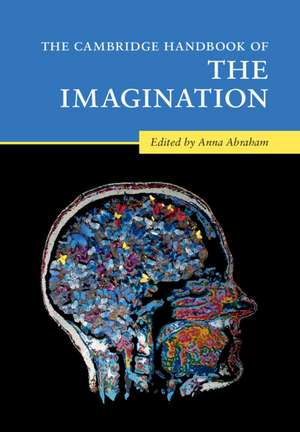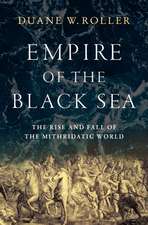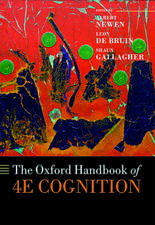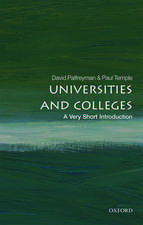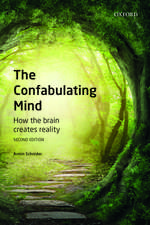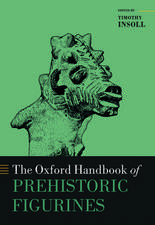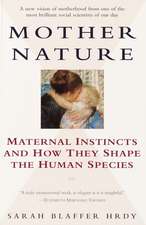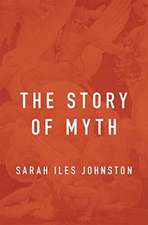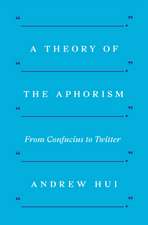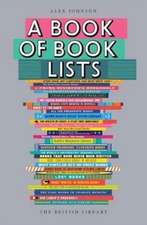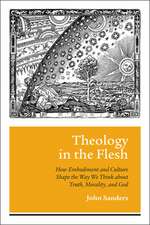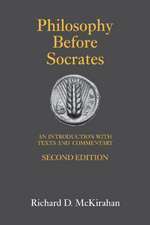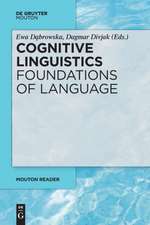The Cambridge Handbook of the Imagination: Cambridge Handbooks in Psychology
Editat de Anna Abrahamen Limba Engleză Hardback – 17 iun 2020
| Toate formatele și edițiile | Preț | Express |
|---|---|---|
| Paperback (1) | 491.54 lei 17-23 zile | +49.49 lei 10-14 zile |
| Cambridge University Press – 17 iun 2020 | 491.54 lei 17-23 zile | +49.49 lei 10-14 zile |
| Hardback (1) | 1256.18 lei 3-5 săpt. | |
| Cambridge University Press – 17 iun 2020 | 1256.18 lei 3-5 săpt. |
Din seria Cambridge Handbooks in Psychology
- 23%
 Preț: 1254.71 lei
Preț: 1254.71 lei - 11%
 Preț: 449.49 lei
Preț: 449.49 lei -
 Preț: 502.52 lei
Preț: 502.52 lei -
 Preț: 501.96 lei
Preț: 501.96 lei - 8%
 Preț: 426.60 lei
Preț: 426.60 lei -
 Preț: 486.56 lei
Preț: 486.56 lei - 5%
 Preț: 441.42 lei
Preț: 441.42 lei - 9%
 Preț: 1282.44 lei
Preț: 1282.44 lei -
 Preț: 494.25 lei
Preț: 494.25 lei - 8%
 Preț: 429.69 lei
Preț: 429.69 lei - 5%
 Preț: 397.85 lei
Preț: 397.85 lei - 23%
 Preț: 1246.12 lei
Preț: 1246.12 lei - 5%
 Preț: 439.60 lei
Preț: 439.60 lei - 19%
 Preț: 491.54 lei
Preț: 491.54 lei - 5%
 Preț: 718.49 lei
Preț: 718.49 lei -
 Preț: 511.59 lei
Preț: 511.59 lei - 8%
 Preț: 426.60 lei
Preț: 426.60 lei - 8%
 Preț: 427.05 lei
Preț: 427.05 lei - 8%
 Preț: 425.42 lei
Preț: 425.42 lei -
 Preț: 411.92 lei
Preț: 411.92 lei -
 Preț: 272.35 lei
Preț: 272.35 lei - 8%
 Preț: 425.42 lei
Preț: 425.42 lei - 9%
 Preț: 594.29 lei
Preț: 594.29 lei -
 Preț: 511.21 lei
Preț: 511.21 lei - 23%
 Preț: 1248.79 lei
Preț: 1248.79 lei -
 Preț: 370.88 lei
Preț: 370.88 lei - 8%
 Preț: 424.41 lei
Preț: 424.41 lei -
 Preț: 374.90 lei
Preț: 374.90 lei - 8%
 Preț: 427.49 lei
Preț: 427.49 lei -
 Preț: 511.59 lei
Preț: 511.59 lei - 5%
 Preț: 1538.86 lei
Preț: 1538.86 lei - 23%
 Preț: 2195.06 lei
Preț: 2195.06 lei - 23%
 Preț: 1168.35 lei
Preț: 1168.35 lei - 8%
 Preț: 428.36 lei
Preț: 428.36 lei -
 Preț: 488.47 lei
Preț: 488.47 lei - 8%
 Preț: 420.13 lei
Preț: 420.13 lei - 9%
 Preț: 850.12 lei
Preț: 850.12 lei - 8%
 Preț: 430.05 lei
Preț: 430.05 lei -
 Preț: 497.35 lei
Preț: 497.35 lei -
 Preț: 283.03 lei
Preț: 283.03 lei
Preț: 1256.18 lei
Preț vechi: 1631.40 lei
-23% Nou
Puncte Express: 1884
Preț estimativ în valută:
240.40€ • 250.05$ • 198.46£
240.40€ • 250.05$ • 198.46£
Carte disponibilă
Livrare economică 22 martie-05 aprilie
Preluare comenzi: 021 569.72.76
Specificații
ISBN-13: 9781108429245
ISBN-10: 1108429246
Pagini: 862
Ilustrații: 64 b/w illus.
Dimensiuni: 182 x 259 x 43 mm
Greutate: 1.81 kg
Editura: Cambridge University Press
Colecția Cambridge University Press
Seria Cambridge Handbooks in Psychology
Locul publicării:New York, United States
ISBN-10: 1108429246
Pagini: 862
Ilustrații: 64 b/w illus.
Dimensiuni: 182 x 259 x 43 mm
Greutate: 1.81 kg
Editura: Cambridge University Press
Colecția Cambridge University Press
Seria Cambridge Handbooks in Psychology
Locul publicării:New York, United States
Cuprins
1. Surveying the imagination landscape; Part I. Theoretical Perspectives on the Imagination: 2. The evolution of a human imagination; 3. Material imagination: an anthropological perspective; 4. The archaeological imagination; 5. Philosophical perspectives on imagination in the Western tradition; 6. Imagination in classical India: a short introduction; 7. From prediction to imagination; 8. Memory and imagination: perspectives on constructive episodic simulation; 9. Capturing the imagination; 10. A sociocultural perspective on imagination; 11. Artificial intelligence and imagination; Part II. Imagery-Based Forms of Imagination: 12. The visual imagination; 13. Musical imagery; 14. Neurophysiological foundations and practical applications of motor imagery; 15. Temporal mental imagery; 16. Emotional mental imagery; 17. Multisensory perception and mental imagery; 18. Evocation: how mental imagery spans across the senses; Part III. Intentionality-Based Forms of Imagination: 19. Continuities and discontinuities between imagination and memory: the view from philosophy; 20. Imagining and experiencing the self on cognitive maps; 21. The neuroscience of imaginative thought: an integrative framework; 22. Imagination and self-referential thinking; 23. Imaginary friends: how imaginary minds mimic real life; 24. Imagination and moral cognition; 25. Moral reasoning: a network neuroscience perspective; 26. The future-directed functions of the imagination: from prediction to metaforesight; Part IV. Novel Combinatorial Forms of Imagination: 27. On the interaction between episodic and semantic representations: constructing a unified account of imagination; 28. How imagination supports narrative experiences for textual, audiovisual, and interactive narratives; 29. Development of the fantasy-reality distinction; 30. Imagining the real: Buddhist paths to wholeness in Tibet; 31. Hypothetical thinking; 32. The counterfactual imagination: the impact of alternatives to reality on morality; 33. A look back at pioneering theories of the creative brain; Part V. Phenomenology-Based Forms of Imagination: 34. Imagination in the philosophy of art; 35. Imagination in aesthetic experience; 36. The arts and human symbolic cognition: art is for social communication; 37. Aesthetic engagement: lessons from art history, neuroscience, and society; 38. Dance and the imagination: be a butterfly!; 39. Imagination, intersubjectivity and a musical therapeutic process: a personal narrative; Part VI. Altered States of Imagination: 40. Dreaming beyond imagination and perception; 41. Dreaming is imagination roaming freely, based on embodied simulation, and subserved by an unconstrained default network; 42. Aphantasia; 43. Hypnosis and imagination; 44. Hallucinations and imagination; 45. The psychiatry of imagination; 46. Meditation and imagination; 47. Flow in performance and creative cognition: an optimal state of task-based adaptation; 48. The force of the imagination.
Recenzii
'This edited volume offers a unique combination of neuroscientific, philosophical, psychological, anthropological, and historical perspectives on imagination. All the contributors are acknowledged masters of their respective disciplines, as well as excellent writers to boot, which makes this handbook an indispensable resource for anyone interested in this fascinating subject.' Elkhonon Goldberg, Clinical Professor, New York University School of Medicine
'This is a fantastic contribution to research on imagination. The activity of imagining is invoked across a large range of otherwise diverse human activities; it's therefore crucial that researchers from different backgrounds talk to each other about it. This book is a rich conversation from which anyone interested in the imagination will learn a lot.' Kathleen Stock, University of Sussex
'Anna Abraham's 'neurophilosophical' approach cultivates a holistic understanding of imagination across cultures and disciplines. Her five-fold framework provides a space for academic and applied approaches to meet, thereby bringing the 'force of imagination' to centre stage.' Gerald Cupchik, University of Toronto
'This handbook is an essential resource written by leading experts in their respective fields from across the world. Each chapter showcases a rich and detailed analysis about how the imagination is understood across several disciplines of study, including anthropology, archaeology, medicine, neuroscience, psychology, philosophy and the arts.' Scott Barry Kaufman, University of Pennsylvania
'No other handbook has collected contributions from philosophers, psychologists, and neuroscientists of imagination in one place. In doing so, this comprehensive work promises a perspective on the imagination that transcends disciplinary perspectives and boundaries. As such, it will surely be a resource for scholars of imagination for years to come.' Shen-yi Liao, University of Puget Sound, Washington
'This is a fantastic contribution to research on imagination. The activity of imagining is invoked across a large range of otherwise diverse human activities; it's therefore crucial that researchers from different backgrounds talk to each other about it. This book is a rich conversation from which anyone interested in the imagination will learn a lot.' Kathleen Stock, University of Sussex
'Anna Abraham's 'neurophilosophical' approach cultivates a holistic understanding of imagination across cultures and disciplines. Her five-fold framework provides a space for academic and applied approaches to meet, thereby bringing the 'force of imagination' to centre stage.' Gerald Cupchik, University of Toronto
'This handbook is an essential resource written by leading experts in their respective fields from across the world. Each chapter showcases a rich and detailed analysis about how the imagination is understood across several disciplines of study, including anthropology, archaeology, medicine, neuroscience, psychology, philosophy and the arts.' Scott Barry Kaufman, University of Pennsylvania
'No other handbook has collected contributions from philosophers, psychologists, and neuroscientists of imagination in one place. In doing so, this comprehensive work promises a perspective on the imagination that transcends disciplinary perspectives and boundaries. As such, it will surely be a resource for scholars of imagination for years to come.' Shen-yi Liao, University of Puget Sound, Washington
Descriere
Discover the human imagination - what it entails, how it evolved, and why it singularly defines us as a species.
